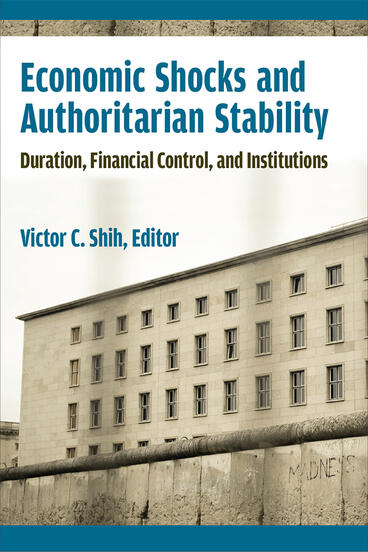Economic Shocks and Authoritarian Stability
Duration, Financial Control, and Institutions
What topples a statue?
Description
Over two billion people still live under authoritarian rule. Moreover, authoritarian regimes around the world command enormous financial and economic resources, rivaling those controlled by advanced democracies. Yet authoritarian regimes as a whole are facing their greatest challenges in the recent two decades due to rebellions and economic stress. Extended periods of hardship have the potential of introducing instability to regimes because members of the existing ruling coalition suffer welfare losses that force them to consider alternatives, while previously quiescent masses may consider collective uprisings a worthwhile gamble in the face of declining standards of living.
Economic Shocks and Authoritarian Stability homes in on the economic challenges facing authoritarian regimes through a set of comparative case studies that include Iran, Iraq under Saddam Hussein, Malaysia, Indonesia, Jordan, Russia, the Eastern bloc countries, China, and Taiwan—authored by the top experts in these countries. Through these comparative case studies, this volume provides readers with the analytical tools for assessing whether the current round of economic shocks will lead to political instability or even regime change among the world’s autocracies. This volume identifies the duration of economic shocks, the regime’s control over the financial system, and the strength of the ruling party as key variables to explain whether authoritarian regimes would maintain the status quo, adjust their support coalitions, or fall from power after economic shocks.
Victor C. Shih is Ho Miu Lam Chair and Associate Professor in China and Pacific Relations at the School of Global Policy and Strategy, University of California, San Diego.
Reviews
“Important theories in the field would lead us to expect that economic shocks might lead authoritarian regimes to democratize. This volume challenges this conventional wisdom, showing that shocks do not change whether autocrats rule, they change how they rule. The volume is persuasive, well-written, and packed with important new insights from the leading scholars in the field.”
—Daniel Mattingly, Yale University
News, Reviews, Interviews
Pending: Podcast on New Books Network | May 2021

